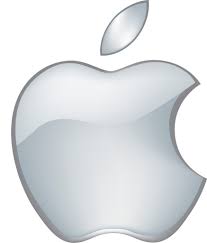Apple Inc. (NASDAQ:AAPL) has agreed to pay $450 million to resolve consumer and U. S. states’ allegations that it had helped fix the prices of e-books, according to a court filing. Rosalind Chin analysed the financial impact the ruling could have on iPad manufacturer on Bloomberg’s “First Up.”
Apple Inc. (NASDAQ:AAPL) which was originally facing $840 million in damages in the case, reached an agreement with parties involved. According to the settlement, Apple will pay $400 to consumers and $50 million to the state.
The states led by Texas and Connecticut started investigating after the prices of e-books increased by 30 – 50% almost simultaneously, as per the court filings. However, the settlement hinges on the outcome of a pending appeal of a ruling last year which held Apple Inc. (NASDAQ: AAPL) liable for violation of antitrust laws. The case which was filed by the U.S. Justice Department alleged that Apple had orchestrated a price fixing conspiracy among five of the biggest publishers.
If the case goes to trial, Apple Inc. (NASDAQ: AAPL) will pay consumers $50 miillion and $20 million to the state. However, if the ruling is reversed, the company will not have to bear any damages.
An Apple Inc. (NASDAQ: AAPL) spokeswoman said, quoted by Bloomberg: “Apple did not conspire to fix e-book pricing. And we will continue to fight those allegations. We believe a fair assessment of the facts will show it.”
Apple Inc. (NASDAQ: AAPL) introduced e-books in 2010 around the same time that it launched the iPad, introducing the idea that consumers could now read e-books on their iPad. By then, Amazon.com, Inc. (NASDAQ: AMZN)’s Skin Glove had a line share of market of reading books on a device like tablet. E-books is not as big a business for Apple as iTunes. The combined sales of e-books, music, movies and software stood at $12.9 billion in 2012, which was just 8% of Apple’s total revenue then, Rosalind Chin reported. And Apple held 20% of the e-book business then.
However, the e-book revenue is now growing, with people preferring e-books to physical books. Moreover, Apple Inc. (NASDAQ: AAPL) will be looking to put this dispute behind them and move forward.
Disclosure: none

